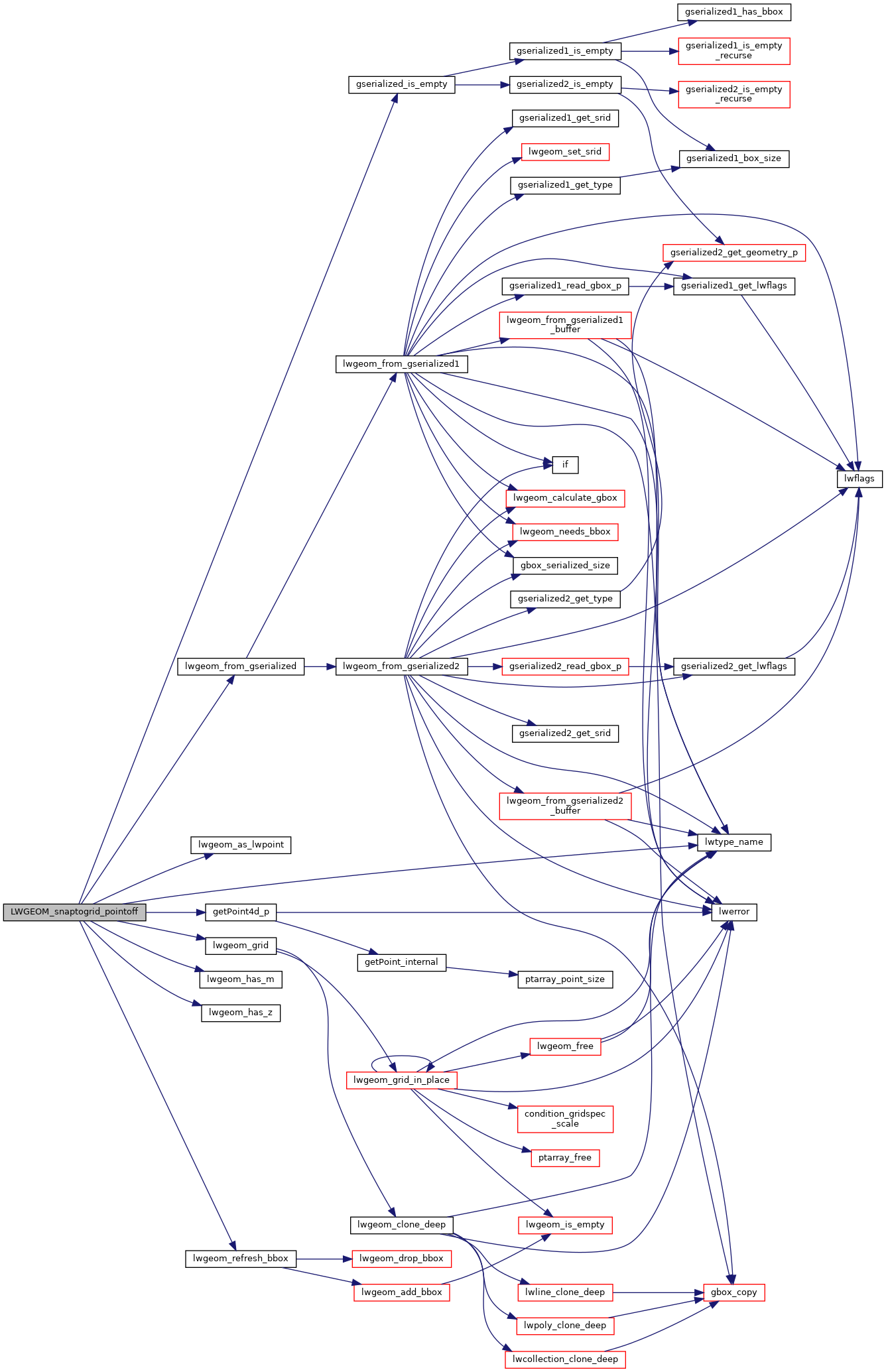◆ LWGEOM_snaptogrid_pointoff()
| Datum LWGEOM_snaptogrid_pointoff | ( | PG_FUNCTION_ARGS | ) |
Definition at line 393 of file lwgeom_functions_analytic.c.
LWGEOM * lwgeom_from_gserialized(const GSERIALIZED *g)
Allocate a new LWGEOM from a GSERIALIZED.
Definition: gserialized.c:268
int gserialized_is_empty(const GSERIALIZED *g)
Check if a GSERIALIZED is empty without deserializing first.
Definition: gserialized.c:181
void lwgeom_refresh_bbox(LWGEOM *lwgeom)
Drop current bbox and calculate a fresh one.
Definition: lwgeom.c:707
int lwgeom_has_z(const LWGEOM *geom)
Return LW_TRUE if geometry has Z ordinates.
Definition: lwgeom.c:934
const char * lwtype_name(uint8_t type)
Return the type name string associated with a type number (e.g.
Definition: lwutil.c:216
int getPoint4d_p(const POINTARRAY *pa, uint32_t n, POINT4D *point)
Definition: lwgeom_api.c:125
int lwgeom_has_m(const LWGEOM *geom)
Return LW_TRUE if geometry has M ordinates.
Definition: lwgeom.c:941
Definition: liblwgeom.h:443
Definition: liblwgeom.h:457
Definition: liblwgeom.h:469
Definition: liblwgeom.h:413
References LWGEOM::bbox, getPoint4d_p(), gserialized_is_empty(), gridspec_t::ipm, gridspec_t::ipx, gridspec_t::ipy, gridspec_t::ipz, lwgeom_as_lwpoint(), lwgeom_from_gserialized(), lwgeom_grid(), lwgeom_has_m(), lwgeom_has_z(), lwgeom_refresh_bbox(), lwtype_name(), POINT4D::m, gridspec_t::msize, LWPOINT::point, LWGEOM::type, POINT4D::x, gridspec_t::xsize, POINT4D::y, gridspec_t::ysize, POINT4D::z, and gridspec_t::zsize.
Here is the call graph for this function:
